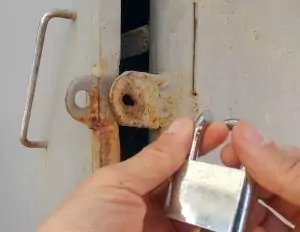As you consider retiring and closing a medical practice, there are a few questions that need answering. One is always the question of what to do with medical records after closing the practice. Even though you no longer provide care, you’re still custodian of the records until they meet their retention, which are often dictated by complex statutory requirements and regulations. This often means retention requirements of up to ten years, and the legal obligation to retrieve and release records upon request until the retention period is met.
When faced with such a challenge, it’s only natural to look for an easy solution, and many will opt for a storage unit for their medical records to ride out the duration of their retention requirements. But this solution exposes you and your estate to serious risks. When patients’ health and well-being is on the line, alongside your peace of mind during retirement, these five reasons demonstrate why storage units are a no-go for long-term storage of medical records.
1. Storage Units Aren’t Secure
Storage units seem like a secure way to store almost anything, including records. Unfortunately, this isn’t always the case. In the worst of scenarios, you might find that a storage unit is only as secure as the padlock on the door. Criminals who rob storage units are prone to taking things because they look valuable or important, or simply grabbing boxes and waiting until later to see if they wound up with something valuable. This means even something as mundane as a stack of records is at risk of being stolen. For a job as important as long-term medical records storage, a simple padlock isn’t enough to guarantee the security you need.
2. Aren’t Ideal for Preserving Records
Additionally, storage units don’t create an ideal setting for records storage. Paper records are sensitive to the elements, and particularly for outdoor self-storage settings, exposure to heat and humidity is a real threat to retaining the viability of your records. Particularly in humid or coastal settings, paper records inside metal storage units are susceptible to damage over time.
3. Waste of Space
While it may seem like storage units are a smart way to create storage space for your records, a closer look complicates things. Storage units don’t just create space wherever it’s needed, after all. Instead, they require moving and organizing, meaning more expenses and even risk as you and employees transfer the records into the storage facility. Then comes the fees associated with maintaining the storage space. And as inventory shrinks through records meeting retention requirements, you’ll face either consolidating units to save on cost, thus having to reorganize records within units, or paying the fixed cost of space you don’t even need.
4. Not a Cost-Effective Way to Store Records
Speaking of fees, storage units are also less-than-ideal when it comes to cost-effectiveness. Simple 10×10 storage units may cost up to $100 a month, and the price may increase over the lifetime of the records stored. Considering things like security, professional custodianship, and useful management tactics, partnering with professionals from the medical records management industry is likely to get you a better, more cost-effective records storage solution than the bare minimum a storage unit can offer.
5. No Records Management System

If you’re a medical care provider approaching retirement or the closure of your practice, consider partnering with Cariend for your end-of-practice records management needs. Cariend provides both secure storage for your records and a records management plant tailored to your practice’s records and the specific retention standards they require. Cariend guarantees patient peace of mind through access to records, along with provider peace of mind through the secure destruction of records as they meet retention. Contact Cariend today to learn more about a tailored plan for managing your records.











